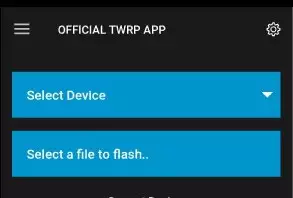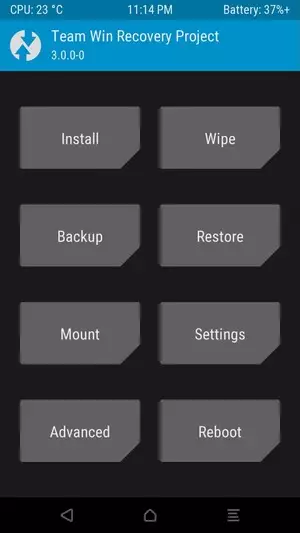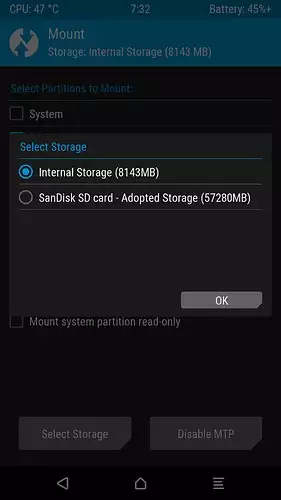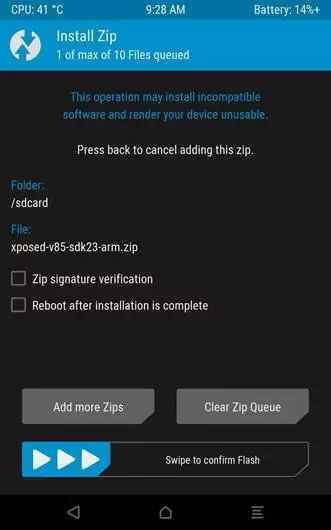Flash firmware on Digma PLANE 1572 3G
Mobiles >> Digma >> Digma PLANE 1572 3G| Specifications | Reviews | Secret codes |
| Unlock phone | Root phone |
| Backup | Flash Firmware | Screenshot |
How to flash Digma PLANE 1572 3G?
Why reinstall the firmware?
Errors constantly appear in the Android OS.
Some applications stop opening.
Many programs from the Play Market do not work.
The phone restarts by itself for no reason.
The phone began to work slowly.
You are not satisfied with the possibilities of the stock firmware.
Where can I find the firmware?
On the official website of the manufacturer.
On sites where developers post custom or official OS.
What should be done before installing the firmware?
Create a backup copy of user data and transfer it to your computer.
Insert SD card. An SD card is needed to write firmware to it.
Determine your smartphone model.
Fully charge your device's battery.
Download archive with Firmware. Place it on the SD card.
Installing TWRP Recovery
Install the Official TWRP App via the Play Market. And run this application.
When you start the application for the first time, you must agree to install a new firmware and all the risks associated with this, as well as agree to grant the application Superuser rights and click the 'OK' button.
In the next screen, select the item 'TWRP FLASH' and provide the application with root-rights.

On the main screen of the application, click 'Select Device', and select your phone model.
After selecting the phone, the application will redirect the user to a web page to download the modified recovery environment image file. Download the proposed *.img file.
After downloading the image file, return to the main screen of the Official TWRP App and press the 'Select a file to flash' button. Select the file downloaded in the previous step.
Press the 'FLASH TO RECOVERY' button and confirm your choice.
When the message 'Flash Completed Succsessfuly!' appears on the screen. Click the 'OK' button. The TWRP installation procedure is now complete.
Write the firmware to the SD card. Using a PC or laptop card reader.
Insert a SD memory card into the phone.
To reboot into recovery, you need to enter the menu accessible by pressing the button with three stripes in the upper left corner of the main screen of the application. Select 'Reboot' and then click on the 'REBOOT RECOVERY' button.
Firmware via TWRP

Before flashing, you need to delete all user data from the phone, this will avoid many problems. press 'WIPE' on the home screen.
You can start flashing. Click the 'Install' button.

The file selection screen is displayed. At the very top is the 'Storage' button, select the location where the firmware file is located.
Select the location where the files were copied. Press the 'OK' button.

Select the firmware file and click on it. A screen opens with a warning about possible negative consequences, you need to check the item 'Zip signature verification', which will avoid using corrupted files when writing to the phone's memory sections.
The procedure for flashing the phone will begin, accompanied by the appearance of inscriptions in the log field and the movement of the progress bar.
After the firmware installation procedure is completed, the 'Successful' message appears on the screen.
Summary: OS: Android 8.1 Oreo; Chipset: MediaTek MT8321; CPU Speed: 1.3 GHz; GPU: ARM Mali-400 MP2; Primary display: IPS LCD 10.1" 1280 x 800 pixels 16M colors WXGA, 149 ppi; Secondary display: No; RAM: 2 GB; Internal memory: 16 GB; Memory Card: MicroSD, Up to 64 GB; Primary camera: 2 MP 1600 x 1200 pixels LED flash Sensor type: CMOS, Continuous shooting, Digital zoom, Geotagging, HDR, Face detection, White balance settings, ISO settings, Exposure compensation, Self-timer, Scene mode; Video: 1280 x 720 pixels 720p@30fps; Secondary camera: 0.3 MP 640 x 480 pixels 480p@30fps; Headphone: Yes 3.5mm; WI-FI: Yes 802.11 b/g/n 0; NFC: No; GPS: Yes A-GPS; Bluetooth: No; HDMI: No; Hotknot: No; USB: Yes Micro- ...
Comments, questions and answers on the flash firmware Digma PLANE 1572 3G
Ask a question about Digma PLANE 1572 3G




